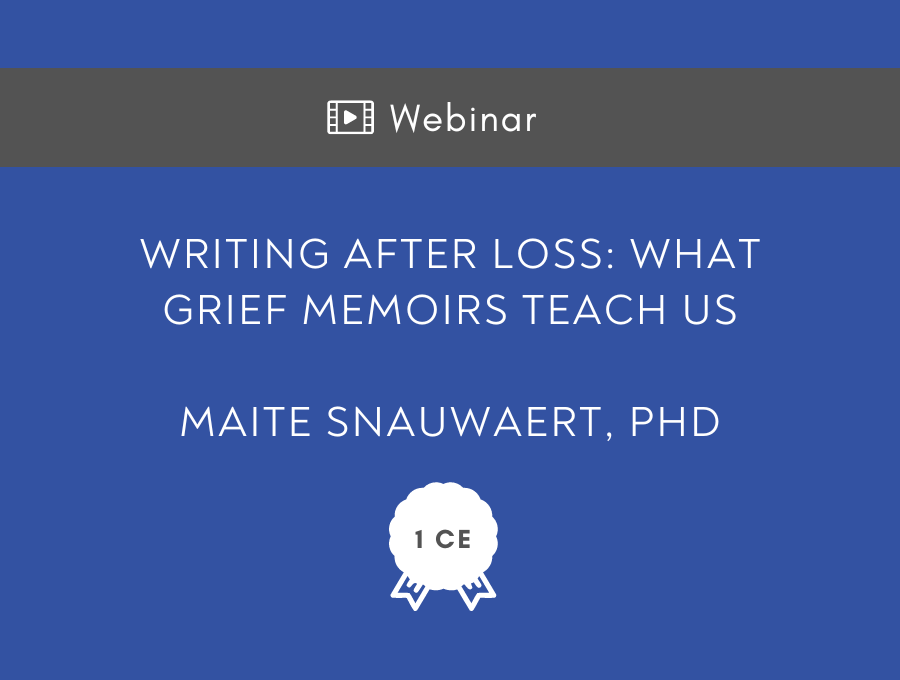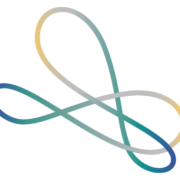
Writing After Loss: What Grief Memoirs Teach Us – 1 CE Hour
About Course
Memoir writers describe the experience of grief firsthand with all of its complexity and nuance. These literary works are often blunt, realistic, and brutally honest often including humour or self-deprecation. They use imagery that is haunting and beautiful that can deepen understanding of the grief experience. Grief memoirs shed light on the often erratic, highly personal process of adaptation to loss. This presentation will share observations from Professor Snauewart’s research on mourning memoirs. It will highlight similarities in clinical and literary thinking that can enhance clinical understanding of acute and integrated grief. Presenter: Maïté Snauwaert is Associate Professor at the University of Alberta, Canada and a Visiting Research Scientist at the Center for Complicated Grief. Her current research, supported by the Social Sciences and Humanities Research Council of Canada (2016-2020), focuses on mourning memoirs published in the US, Canada and Europe in the last twenty-five years. She is the author of two books and has guest-edited several special issues of scholarly journals in literary studies.Description
Memoir writers describe the experience of grief firsthand with all of its complexity and nuance. These literary works are often blunt, realistic, and brutally honest often including humour or self-deprecation. They use imagery that is haunting and beautiful that can deepen understanding of the grief experience. Grief memoirs shed light on the often erratic, highly personal process of adaptation to loss.
This presentation will share observations from Professor Snauewart’s research on mourning memoirs. It will highlight similarities in clinical and literary thinking that can enhance clinical understanding of acute and integrated grief.
Webinar recorded on January 18, 2019.
Learning Objectives
- Analyze uniqueness and commonality across grief storytellers
- Utilize language from literary memoirs to describe grief to clients
- Examine how literary language can inform the process of finding the words to explain grief therapy procedures to clients
About the Presenter
Maïté Snauwaert is Associate Professor at the University of Alberta, Canada and a Visiting Research Scientist at the Center for Complicated Grief. Her current research, supported by the Social Sciences and Humanities Research Council of Canada (2016-2020), focuses on mourning memoirs published in the US, Canada and Europe in the last twenty-five years. She is the author of two books and has guest-edited several special issues of scholarly journals in literary studies.
Continuing Education
American Psychological Association
The Center for Prolonged Grief at Columbia School of Social Work is approved by the American Psychological Association to sponsor continuing education for psychologists. The Center for Prolonged Grief maintains responsibility for this program and its content.
Note: Many state boards recognize the APA approval. Please check with your state licensing board.
New York State Education Department
- NYSED State Board for Psychology recognizes the Center for Prolonged Grief as an approved provider of continuing education for licensed psychologists (#PSY-0150).
- NYSED Board for Social Work recognizes the Center for Prolonged as an approved provider of continuing education for licensed social workers (#SW‐0727).
- NYSED State Board for Mental Health Practitioners recognizes the Center for Prolonged Grief as an approved provider of continuing education for licensed marriage and family therapists (#MFT-0080).
Note: Non-NYS social workers, marriage and family therapists, and other professionals, please check with your state licensing board. Many states have recognized our continuing education programs as we are at a CSWE-accredited institution and part of a regionally accredited university.
Course Content
Writing After Loss: What Grief Memoirs Teach Us
-
Watch the webinar
00:00 -
Take the post-test
-
Post-webinar evaluation
00:00
About the instructors
2 Courses
10 students
3 Courses
0 students
34 Courses
346 students
22 Courses
0 students
